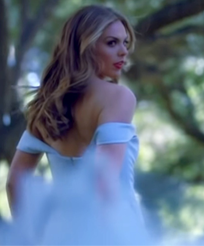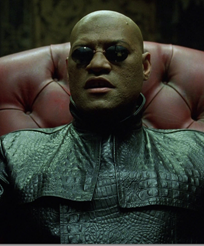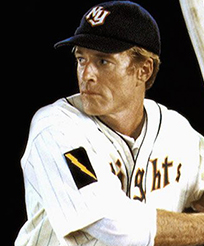A few years ago, Jeff Tweedy read me a story.
I was sitting in a semi-crowded auditorium at DePaul University in Chicago when he ambled on stage, wearing his signature hat and a wry smile, a worn copy of George Saunders's Tenth of December in his hands. He moved slowly, deliberately towards the podium, splaying the book out with care. He coughed once or twice into the microphone, then began reading the book’s titular story.
“Tenth of December” is not an easy story to read aloud. At once folksy and verbose, jargon-y and sophisticated, it is also littered with made-up words, fantastical creatures (“Nethers”, “Gzeemons” and the like) and a chorus of imaginary voices. The plot revolves around a bullied young boy attempting to cross a frozen pond in order to deliver a cancer-ridden man—who is attempting suicide to spare his family pain—his discarded coat in 10-degree weather. When the boy falls through the ice, the suicidal man comes to rescue. It is a sad story and a hopeful story and a playfully funny story, too, about helping people and being able to accept help, about the heartbreak of disappointing the ones you love. Above all else, it showcases, like many of Saunders's stories, the fundamental goodness of man, which despite his best efforts often comes up short.
It would not be so much of a stretch to say that Saunders is to the world of contemporary literature as Tweedy (or Wilco) is to the world of contemporary music: they share a vulnerability, a rueful wit, a quick willingness to love that tendentiously leaves them (or their characters) in pain. I’m thinking, in Tweedy’s case, of songs like “I’m Always in Love”—Why, I wonder, is my heart full of holes/And the feeling goes but my hair keeps growing/Will I set the sun/On a big-wheeled wagon/I’m bragging/I’m always in love—“Shot in the Arm”—Maybe all I need is a shot in the arm/Something in my veins bloodier than blood—and “Whole Love”—I will still love you to the death/And I won’t ever forget how/And I know that it won’t be/The easiest to set free.
These are songs brimming with love yet tinged with sorrow. And no voice is better suited to such a sensation than Tweedy’s. His voice sounds the way grasping for a ledge and slipping feels. It is something beautiful labeled “Fragile” that you send out into the void and pray to god doesn’t break. It is a rosy-cheeked boy in the bitter cold saving a man on the brink of death. It is, finally, countless other ham-handed metaphors.
But I digress.
The reason for this impromptu rhapsody on Tweedy’s voice is that on Friday, he’ll release a new solo album, “Together at Last,” composed of acoustic covers of 11 songs, mostly from Wilco, but also from Tweedy’s side projects, like Loose Furs. As you can tell from this recent performance on Late Night with Seth Meyers, it’s about as stripped down as you can get.
For diehard fans of Wilco—can you tell I’m one of them?—the album promises to be a trove of interesting takes on old classics, like “Sky Blue Sky” and “I’m Trying to Break Your Heart.” But for those newer to Wilco, it’s also a gateway into what makes the band so great: Tweedy’s one-of-a-kind voice, that’s uniquely aligned with the lyrics it carries. (His lyrics have been called “obtuse,” but they’re obtuse in the way the best poetry is obtuse, nipping at the edges of meaning and in doing so achieving something far greater: a mosaic, a mood, a feeling. Look no further than the anthropomorphic wordplay on “Jesus, etc” and “She’s a Jar.”)
Perhaps this is Tweedy’s way of doing a retrospective—a sort of “best of” compilation musicians of his age and stature feel inclined to put out after however many years. But can you imagine caring as much about another rock musician doing something like this? I sure can’t.
Then again, I also spent an evening listening to the man read a short story.
I was sitting in a semi-crowded auditorium at DePaul University in Chicago when he ambled on stage, wearing his signature hat and a wry smile, a worn copy of George Saunders's Tenth of December in his hands. He moved slowly, deliberately towards the podium, splaying the book out with care. He coughed once or twice into the microphone, then began reading the book’s titular story.
“Tenth of December” is not an easy story to read aloud. At once folksy and verbose, jargon-y and sophisticated, it is also littered with made-up words, fantastical creatures (“Nethers”, “Gzeemons” and the like) and a chorus of imaginary voices. The plot revolves around a bullied young boy attempting to cross a frozen pond in order to deliver a cancer-ridden man—who is attempting suicide to spare his family pain—his discarded coat in 10-degree weather. When the boy falls through the ice, the suicidal man comes to rescue. It is a sad story and a hopeful story and a playfully funny story, too, about helping people and being able to accept help, about the heartbreak of disappointing the ones you love. Above all else, it showcases, like many of Saunders's stories, the fundamental goodness of man, which despite his best efforts often comes up short.
It would not be so much of a stretch to say that Saunders is to the world of contemporary literature as Tweedy (or Wilco) is to the world of contemporary music: they share a vulnerability, a rueful wit, a quick willingness to love that tendentiously leaves them (or their characters) in pain. I’m thinking, in Tweedy’s case, of songs like “I’m Always in Love”—Why, I wonder, is my heart full of holes/And the feeling goes but my hair keeps growing/Will I set the sun/On a big-wheeled wagon/I’m bragging/I’m always in love—“Shot in the Arm”—Maybe all I need is a shot in the arm/Something in my veins bloodier than blood—and “Whole Love”—I will still love you to the death/And I won’t ever forget how/And I know that it won’t be/The easiest to set free.
These are songs brimming with love yet tinged with sorrow. And no voice is better suited to such a sensation than Tweedy’s. His voice sounds the way grasping for a ledge and slipping feels. It is something beautiful labeled “Fragile” that you send out into the void and pray to god doesn’t break. It is a rosy-cheeked boy in the bitter cold saving a man on the brink of death. It is, finally, countless other ham-handed metaphors.
But I digress.
The reason for this impromptu rhapsody on Tweedy’s voice is that on Friday, he’ll release a new solo album, “Together at Last,” composed of acoustic covers of 11 songs, mostly from Wilco, but also from Tweedy’s side projects, like Loose Furs. As you can tell from this recent performance on Late Night with Seth Meyers, it’s about as stripped down as you can get.
For diehard fans of Wilco—can you tell I’m one of them?—the album promises to be a trove of interesting takes on old classics, like “Sky Blue Sky” and “I’m Trying to Break Your Heart.” But for those newer to Wilco, it’s also a gateway into what makes the band so great: Tweedy’s one-of-a-kind voice, that’s uniquely aligned with the lyrics it carries. (His lyrics have been called “obtuse,” but they’re obtuse in the way the best poetry is obtuse, nipping at the edges of meaning and in doing so achieving something far greater: a mosaic, a mood, a feeling. Look no further than the anthropomorphic wordplay on “Jesus, etc” and “She’s a Jar.”)
Perhaps this is Tweedy’s way of doing a retrospective—a sort of “best of” compilation musicians of his age and stature feel inclined to put out after however many years. But can you imagine caring as much about another rock musician doing something like this? I sure can’t.
Then again, I also spent an evening listening to the man read a short story.













